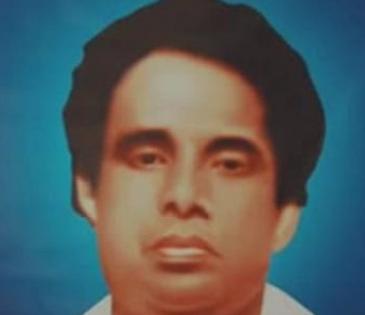Documentary on Guru Vagbhatanandan 'The Herald of the Dawn of Renaissance'
By IANS | Published: October 27, 2021 03:42 PM2021-10-27T15:42:05+5:302021-10-27T15:55:06+5:30
Thiruvananthapuram, Oct 27 Guru Vagbhatanandan is a glorious name in the history of Kerala Renaissance, but for some ...

Documentary on Guru Vagbhatanandan 'The Herald of the Dawn of Renaissance'
Thiruvananthapuram, Oct 27 Guru Vagbhatanandan is a glorious name in the history of Kerala Renaissance, but for some reason he has not received the recognition he deserves and it's here that a documentary which is now ready and is all set for its premiere show to be held on Thursday.
Chief Minister Pinarayi Vijayan is the chief guest for it.
The 60 minute documentary written and directed by one of state's top most former bureaucrat K. Jayakumar, is produced by Uralungal Labour Contract Cooperative Society.
Jayakumar, a former Chief Secretary of the state is the son of one of the legends of Malayalam films - M. Krishnan Nair who has directed 100 films which starred legends like Prem Nazir, MGR and NTR.
The documentary film reveals his unique personality, which has evolved from being a spiritual teacher to a social reformer and a renaissance leader, by applying the spiritual vision of 'I am Brahmam, you are the same, so there is no two but only one' in the material and social life.
Guru Vagbhatanandan was born as Kunjikannan on April 27, 1885, the son of Vayaleri Cheeruvamma of Patyam, North Malabar, and Koran Gurikal, a Sanskrit scholar, poet and progressive thinker.
The 'Atmavidyasangam' Spiritual Society formed by him for the spread of spiritual philosophy and the activities based on it was largely focused on social reformation work. The life of the Guru was a struggle against the social conditions that caused division, such as caste, as the principle of oneness rejects all such distinctions.
Vagbhatanandan, who called for non-caste 'preethi-vivaha (marriage through love)' and 'preethi-bhojana (eat with love)', unleashed a storm of change in North Malabar.
He unequivocally opposed any form of untouchability and the degrading treatment of women, untouchability and superstitions.
His followers literally carried out his calls for women to attend ceremonies wearing upper-body clothes, which were not allowed to be worn by those who were considered lower castes. It was a courageous revolution that uplifted the dignity of women. His 'Prathimochaatanam (disposing with idols)', exposing the futility of idolatry, was another revolution.
All this disturbed the caste hegemony, and the landlords in the village of Karaikkadu near Kozhikode Vadakara, the birthplace of the Atmavidyasangham, imposed penalties on the Atmavidyasangham workers by denying them jobs, education, loans and livelihood.
The Atmavidyasangham dealt with it by forming its own school, the United Credit Co-operative to meet loan demands, and the Uralungal Labourers' Mutual Aid and Co-operative Society for employment.
All these institutions have flourished over the century and still radiate that dynamism today.
Among them, the daily-wage labourers' co-operative has grown to become known to the world as the 'Uralungal Labour Contract Cooperative Society', one of the largest labour contract co-operatives in Asia, making significant contributions to nation building.
Vagbhatananda Guru's remarkable speech and interview with Sree Narayana Guru at the conference presided over by Sree Narayana Guru at Aluva on May 14, 1914 is a proclamation of his philosophical wisdom.
He attained samadhi on 29 October 1939.
The content of the documentary extends beyond the Guru's writings, books, essays and memoirs depicting his life and philosophy, and speaks at length to histor, senior activists of the Atmavidyasangham and the older generation in and around Karaikkadu.
The documentary is co-directed by Ajay Sivaram, cinematography is by C.R. Prathapan.
Disclaimer: This post has been auto-published from an agency feed without any modifications to the text and has not been reviewed by an editor
Open in app